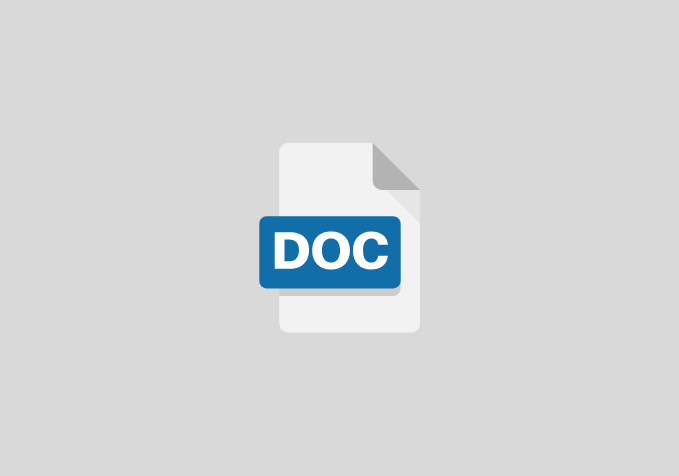The Impact of Cash Management on the Financial Performance of Listed Agriculture Firms in Nigeria
Chapter One
Objectives of the study
The main objective of the study is to examine the impact of cash management on the financial performance of listed agriculture firms in Nigeria.
- Examine the relationship between cash management and return on assets of listed agricultural firms in Nigeria.
- Investigate the relationship between cash management and return on equity in listed agricultural firms in Nigeria.
- To investigate on the factors affecting profitability of the listed agricultural firms in Nigeria
CHAPTER TWO
LITERATURE REVIEW
CONCEPTUAL FRAMEWORK
Cash management involves the process of cash collection, monitoring of cash and its application in investment activities. It is one of the key element for ensuring a company’s financial stability and solvency (Hansen, 2005). It is worthy noting that any business entity, having the objective of maximizing on the profits must always want to acquire the necessary resources for the operation not. These resources needed are limited by ownership of the firms and supply. Money needed for any investment opportunities is also scarce and can only be availed because it was withheld from consumption.
Hutchison (2007) defines cash management as the process which involves the collection and management of cash to ensure optimal cash balances by the business entities. The management of cash focuses at ensuring adequate cash is maintained by the business entities and any surplus is put into the correct use. Business entities have the duty of ensuring that the entities don’t overuse overdrafts as the means of finance. When business entities over apply the overdraft facility ,they can make high returns but still struggle with maintaining adequate cash flows due to the following, making losses, seasonal businesses, delay from the length of credit given to customers and avoidable delays caused by poor administration such as failure to notify the involving department that goods have been dispatched for them to invoice or cheques from debtors being made out incorrectly because invoices do not contain clear information(Hutchison, 2007).
Cash management entails cash forecasting. If entities know their demand for cash in the future, it is possible for any business entity to estimate the demand for cash at any point in time. Due to the uncertainty involved, determining the level of liquidity entails the forecasting of short term and long-term cash demands with reference to investment by the firms, their marketing demands and production activities. Cash forecast. Nevertheless, cash budgets are the best tools for the ongoing WC requirements. It is therefore advisable for the financial controller to carry out the cash forecasts on daily, weekly or monthly basis depending on how busy the entity is (Hutchison, 2007).
Cash management has acquired a global concern in recent years. According to economist John Keynes (1990) business entities hold cash because of the following reasons. Transaction motive implies that persons hold cash for the payment of the normal day-to-day transactions, precautionary motive which means that people will hold cash to cater for any emergencies that may arise and speculative motives which means that persons have expectations that at a future date the cost of some of their inputs may be low. They therefore set some money aside to take advantage of the low price and acquire bulk of the same for use or disposal when prices escalate. In summary, this motive entails holding cash to meet some planned expenditure.
It is unrealistic to suppose that every business payment bill will go through the bank account. When the firm has determined its future cash needs, it is prudent to plan their financing so as to gain control over it. If the shortage of cash is persistent, it indicates a state of under-capitalisation and the need for additional permanent capital; and unless this is obtained the entity may be forced out of business (Flick, 1998). According to the free cash flow theory of cash management (Huseyin, 1991), the management has the responsibility of holding cash to gain control over it in making investment decisions which can affect a business entity. Therefore, this will improve the financial performance of the business entities.
REFERENCES
- Adeniyi, A. A. (2004). Auditing and Investigations, (3.Ed). Osun: EL-TODA Ventures Limited.
- Babtolu, A. T., Osasrere, A. O., & Emmanuel, U. (2016). Auditor’s Independence and Audit Quality: A Study of Selected Deposit Money Banks in Nigeria. International Journal of Finance and Accounting, 5(1), 13-21.
- DeFond, M., & Zhang, J. (2014). A review of archival auditing research. Journal of Accounting and Economics, 58(2), 275-326.
- Eko, S. (2015). Determinant Factors Affecting The Audit Quality : An Indonesian Perspective. Global Review of Accounting and Finance, 3(2), 42 – 57.
- Enofe, A. O., Okunega, C. N., & Ediae, O. O. (2013). Audit Quality and Auditors Independence in Nigeria: An Empirical Evaluation. Research Journal of Finance and Accounting, 4(11), 22-28.
- Gow, I., Larcler, D., & Reiss, P. (2015). Causal Inference in Accounting Research. London: Stanford University.
- Ilaboya, O. J., & Ohiokha, F. I. (2014). Audit firm characteristics and audit quality in Nigeria. International Journal of Business and Economics Research, 3(5), 187-195.
- Loveday, N. A. (2017). Audit Quality Practices and Financial Reporting in Nigeria. International Journal of Academic Research in Accounting, Finance and Management Sciences, 7(2), 145-155.
- Novie, S. S. (2013). An empirical analysis of auditor independence and audit fees on audit quality. International Journal of Management and Business Studies, 3(3), 67-78.
- Nwanyanwu, L. (2013). Financial Reporting and organisational liquidity in Nigeria: the accounting bases perspective. Research Journal of finance and Accounting, 4 (16), 79 – 81.


